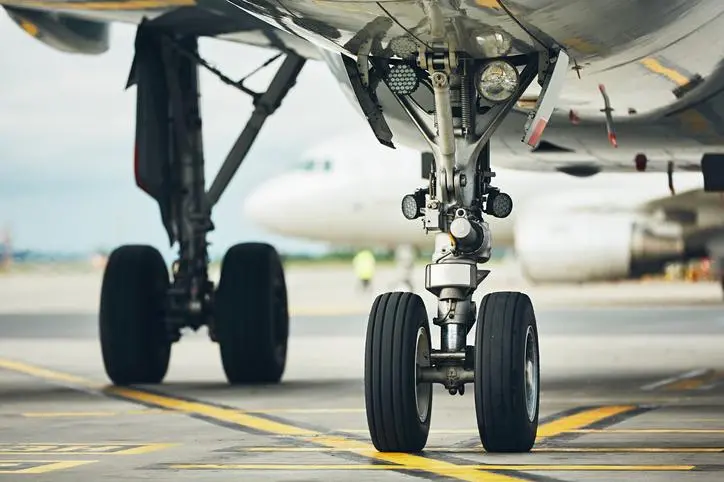The United Kingdom and the Kingdom of Saudi Arabia have entered into a landmark aviation security agreement that’s being hailed as a major leap toward smarter, faster, and more convenient international air travel. The new one-stop airport security arrangement allows passengers traveling between the two countries to go through a single, streamlined security check at the point of departure—eliminating the need for additional screenings upon arrival.
Traditionally, international passengers have had to pass through security checks multiple times during connecting flights, especially when moving between nations with differing standards or protocols. This agreement will remove that redundancy by establishing mutual trust and standardized procedures across both nations’ airport security systems.
This type of bilateral agreement is not only about simplifying travel, it’s about establishing a secure yet frictionless model that prioritizes both safety and passenger experience. It’s a forward-looking approach that aligns with the increasing demand for seamless international connectivity and post-pandemic travel resilience.

Why This Matters: Convenience, Efficiency, Confidence
Hassle-free journeys
For international passengers—especially frequent flyers and business travelers—the new security protocol means no more repeated screening checks during layovers or when entering another country. This can reduce anxiety and travel fatigue, especially on long-haul routes.
Speed and operational efficiency
Airports benefit significantly from streamlined operations. Clearing passengers through a single security check saves space, manpower, and time. As flights arrive with pre-cleared travelers, overall airport traffic flow improves, making connections quicker and more predictable.
Strengthening diplomatic and economic ties
The deal is also symbolic of deepening UK–Saudi relations. While it might seem like a technical aviation development on the surface, the pact is part of a broader movement toward increased cooperation in trade, tourism, and infrastructure development between the two nations.
How It Works: Behind the Scenes of Streamlined Travel
A one-stop security process involves a number of highly coordinated elements. At its core is a shared framework of trust in screening procedures and information exchange.
First, airport security officers in both countries undergo standardized training to ensure they follow identical screening methods. This makes their assessments interchangeable. Second, both nations agree to a shared database for relevant security data—such as passenger screening results, baggage scans, and watchlist checks—so that each side can verify passengers before they even board the plane.
Airports participating in the program will set up special one-stop processing lanes, where passengers are screened according to joint protocols. Once cleared, the traveler is not subjected to another full security check at their destination airport. Their clearance is recognized as valid and complete upon arrival.
Importantly, this doesn’t mean any reduction in safety measures—it simply eliminates duplication by establishing common standards and mutual recognition.
A Win for Everyone Involved
The benefits of this security agreement ripple across the entire travel ecosystem:
For passengers, it’s a smoother, quicker experience that reduces stress and unnecessary waiting.
For airlines, faster turnarounds and fewer delays translate into lower operational costs and greater passenger satisfaction.
For airports, it means more efficient terminal operations, less crowding at security lines, and better use of space and staff.
For governments, the agreement reinforces a secure and trustworthy travel corridor while boosting tourism and bilateral engagement.
This approach also benefits those traveling with families, elderly passengers, and travelers with tight connections—all of whom will face fewer hurdles moving through international airports.
Where It’s Already Rolling Out
The initial phase of the agreement includes major hubs in both nations. In the UK, airports like Heathrow, Gatwick, and Manchester are already preparing the infrastructure required for one-stop lanes. In Saudi Arabia, Riyadh’s King Khalid International Airport and Jeddah’s King Abdulaziz International Airport are implementing similar systems.

British Airways and Saudia Airlines are among the first carriers to pilot these protocols. Training for staff and alignment of security systems are already underway. Both governments are investing in advanced technology and training programs to ensure a smooth rollout by the end of 2025.
Trials at Heathrow have already shown promising results. In test runs, passengers experienced a 25% reduction in average wait times at connecting points, and early feedback highlighted greater confidence and satisfaction among international travelers.
Global Implications: A Template for the Future
This bilateral pact could serve as a model for other nations looking to improve international travel efficiency. It reflects a future where airport partnerships could replace outdated, siloed systems with trusted travel corridors.
Think of hubs in Europe, Asia, or North America adopting a similar one-stop methodology. The combined result could be a global web of trusted airport pathways that speed up travel while maintaining tight security.
In a world where convenience and safety are both top priorities, this agreement represents the next logical evolution in international aviation.
Addressing the Challenges Ahead
As promising as the agreement sounds, implementing it on a large scale will require careful planning and execution. Key challenges include:
Data privacy and cybersecurity: As more data is shared between countries, ensuring secure and ethical handling of passenger information is essential.
Standardization across multiple airports and carriers: It will be important to maintain consistency in training and enforcement across all touchpoints.
Public awareness: Many passengers are still unfamiliar with the concept of one-stop security. Clear communication will be needed to prevent confusion and ensure smooth participation.
Both governments have acknowledged these concerns and have initiated dedicated awareness campaigns and stakeholder engagement strategies. They plan to introduce the new system in phases, allowing for feedback and adaptation along the way.
What’s Next for UK–Saudi Aviation?
The one-stop airport security agreement is just the beginning. Both nations have expressed interest in expanding the concept to include cargo screening, diplomatic and VIP travel, and potentially integrating more countries into the agreement.
Future expansions may include:

Digital identity integration through biometrics and mobile boarding passes
AI-powered risk assessment at screening zones
Broader regional inclusion across the Gulf Cooperation Council (GCC) states or the European Union
Such advancements could bring even more efficiency, reduced costs, and stronger cooperation among nations that share a vision of modern, secure, and fluid travel systems.
Final Thoughts
This new airport security agreement between the United Kingdom and Saudi Arabia isn’t just a bureaucratic upgrade—it’s a bold move toward the future of global travel. In an era where passengers expect smarter service and governments demand tighter security, this pact shows it’s possible to achieve both without compromise.
With increased efficiency, improved safety, and enhanced diplomatic cooperation, the one-stop security system is a testament to what can be achieved through international trust and collaboration. As the world becomes more interconnected, such forward-thinking solutions will be the key to keeping people—and ideas—moving.
Do follow UAE Stories on Instagram
Read More: UAE’s Proactive Move to Keep Skies Secure













